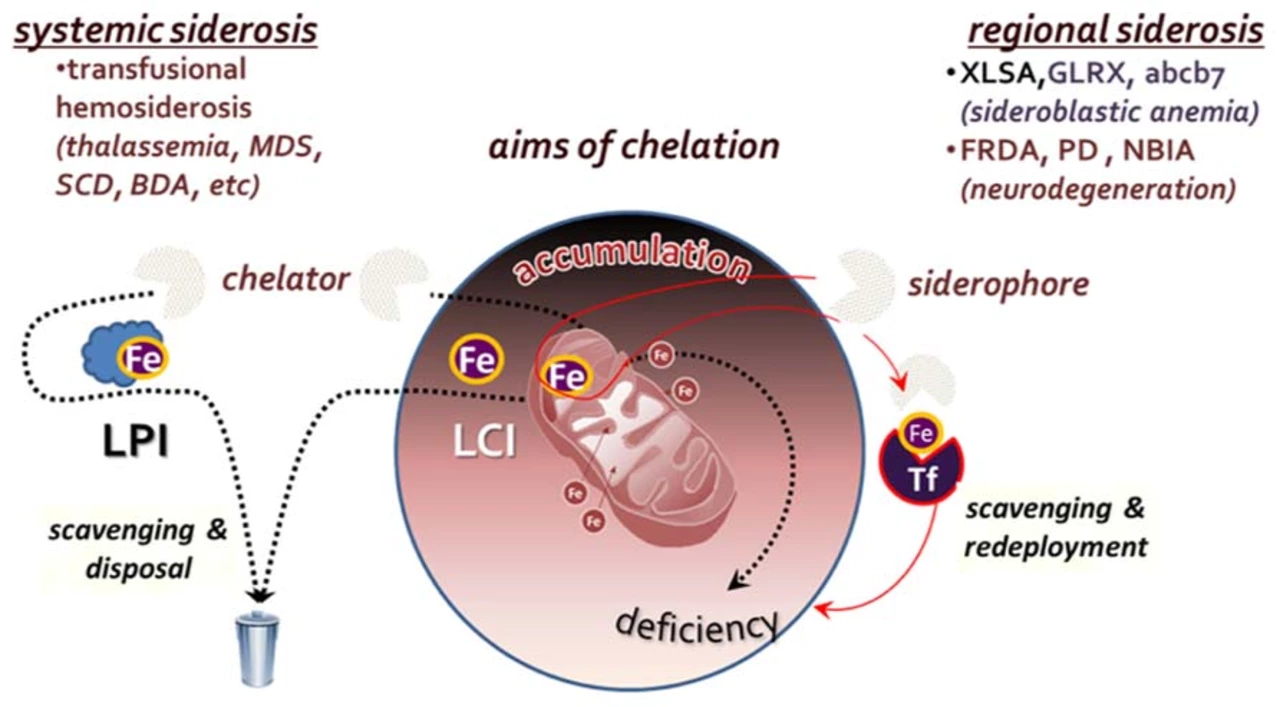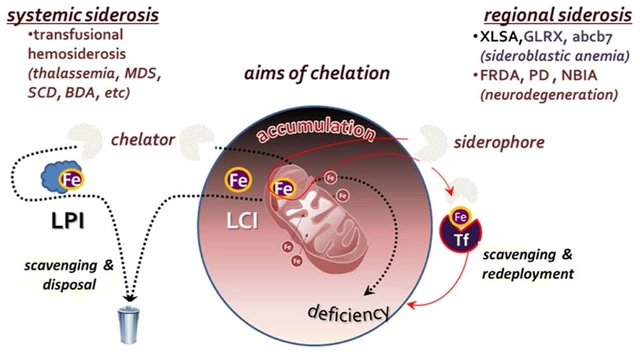Anemia and the Immune System: How Nutritional Deficiencies Weaken Your Body's Defenses

Understanding Anemia and Its Impact on the Immune System
Anemia is a common condition that affects millions of people worldwide. It is characterized by a decrease in the number of red blood cells or a reduction in the amount of hemoglobin in the blood. Hemoglobin is the protein in red blood cells responsible for carrying oxygen throughout the body. When anemia occurs, the body's tissues and organs do not receive enough oxygen, leading to fatigue, weakness, and a weakened immune system.
In this article, we will explore the link between anemia and the immune system, and how nutritional deficiencies contribute to this condition. We will also discuss how you can prevent anemia and maintain a healthy immune system through proper nutrition and lifestyle choices.
The Immune System: Your Body's First Line of Defense
The immune system is a complex network of cells, tissues, and organs that work together to protect the body from harmful substances and invading pathogens. A healthy immune system is essential for maintaining overall health and preventing illnesses, including infections, autoimmune diseases, and even cancer.
When the immune system is compromised, the body becomes more susceptible to infections and other health problems. One common cause of a weakened immune system is anemia, as the lack of oxygen in the blood can impair the function of immune cells and reduce their ability to fight off infections.
How Anemia Affects the Immune System
There are several ways in which anemia can impact the immune system. One of the most significant is through the reduction of oxygen supply to the body's tissues, which can impair the function of immune cells such as white blood cells, natural killer cells, and T-cells. These cells rely on oxygen to produce energy and perform their essential functions in defending the body against pathogens.
Additionally, anemia can cause a decrease in the production of certain immune system proteins, such as cytokines and antibodies, which play crucial roles in the body's immune response. This decrease in protein production can further weaken the immune system and make the body more susceptible to infections and diseases.
Nutritional Deficiencies and Anemia
There are several types of anemia, and many of them are caused by nutritional deficiencies. The most common type of anemia, iron-deficiency anemia, occurs when the body does not have enough iron to produce hemoglobin. Iron is an essential nutrient that must be obtained through diet, and a lack of iron-rich foods can lead to this type of anemia.
Other nutritional deficiencies that can cause anemia include a lack of vitamin B12, folic acid, and vitamin C. These nutrients are essential for the production and function of red blood cells and a healthy immune system. Inadequate intake of these nutrients, either through poor diet or malabsorption issues, can result in anemia and a weakened immune system.
Preventing Anemia Through Proper Nutrition
Ensuring that you consume a balanced diet rich in essential nutrients is crucial for preventing anemia and maintaining a healthy immune system. Incorporating foods high in iron, vitamin B12, folic acid, and vitamin C can help prevent nutritional deficiencies that lead to anemia. Some examples of these nutrient-rich foods include:
- Iron: Red meat, poultry, fish, beans, lentils, tofu, fortified cereals, and dark leafy greens
- Vitamin B12: Animal products such as meat, poultry, fish, eggs, and dairy products; fortified cereals and plant-based milks for those following a vegan diet
- Folic acid: Dark leafy greens, beans, lentils, fortified cereals, and citrus fruits
- Vitamin C: Citrus fruits, berries, kiwi, bell peppers, broccoli, and tomatoes
By consuming a variety of these nutrient-dense foods, you can help prevent anemia and support a strong immune system.
Importance of Regular Checkups and Blood Tests
Regular checkups and blood tests are essential for detecting anemia and other potential health issues early. Your healthcare provider can monitor your hemoglobin levels and other red blood cell indices to identify any signs of anemia. If you are diagnosed with anemia, your healthcare provider will work with you to determine the cause of the condition and develop a treatment plan to address the underlying issue.
In addition to regular checkups, it's essential to pay attention to any signs and symptoms that may indicate anemia, such as fatigue, weakness, pale skin, shortness of breath, and rapid heartbeat. If you experience any of these symptoms, it's important to consult with your healthcare provider for further evaluation and testing.
Lifestyle Choices for a Healthy Immune System
Beyond proper nutrition, there are several lifestyle choices you can make to support a healthy immune system and reduce your risk of anemia. These include:
- Regular exercise: Engaging in regular physical activity can help improve circulation, increase oxygen delivery to tissues, and support overall immune function
- Getting adequate sleep: Aim for 7-9 hours of sleep per night, as sleep is essential for proper immune function and overall health
- Managing stress: Chronic stress can weaken the immune system, so it's important to find healthy ways to cope with stress, such as meditation, yoga, or hobbies
- Avoiding smoking and excessive alcohol consumption: Both smoking and excessive alcohol intake can impair the immune system and increase the risk of anemia
By adopting these healthy habits, you can help support a strong immune system and reduce your risk of developing anemia.
Conclusion
Anemia, particularly when caused by nutritional deficiencies, can weaken your body's immune system and make you more susceptible to infections and diseases. By consuming a balanced diet rich in essential nutrients, getting regular checkups, and making healthy lifestyle choices, you can help prevent anemia and maintain a strong immune system. Remember, a healthy immune system is crucial for overall health and well-being, so it's essential to prioritize the factors that contribute to its proper function.



Mustapha Mustapha
I’ve seen a lot of folks chalk up fatigue to just a busy lifestyle, but the iron link is real. When your red blood cells can’t carry enough oxygen, it’s like trying to run a marathon with a flat tire. The immune cells get short‑changed on energy, so they’re slower to react to invaders. Adding leafy greens, beans, or a bit of red meat can make a noticeable difference in both stamina and how often you catch a cold. Bottom line: keep an eye on your ferritin levels and treat anemia early before your immune system suffers.
Ben Muncie
Anemia is just a symptom, not a lifestyle choice.
kevin tarp
The article nails the biochemistry but skips over the diagnostic thresholds. You need to know the hemoglobin cut‑offs for different ages and sexes before you can claim a deficiency. Also, the interplay between B12 and folate is more nuanced than a simple list suggests. Overall, a solid overview with room for deeper lab detail.
ravi kumar
Look, Kevin, you’re sounding like a textbook from the West while ignoring the reality of our own populations. In India we see massive iron‑deficiency despite abundant pulses because the diet lacks heme iron. It’s not just about lab numbers; it’s about cultural food habits and government fortification policies. If you want to be credible, address the socioeconomic angle, not just the chemistry.
SandraAnn Clark
Life’s blood carries more than oxygen; it carries the spark that keeps us fighting the unseen.
Rex Wang
Exactly, SandraAnn-when those tiny carriers falter, the whole system feels the drag, it’s a cascade of fatigue, weak defense, and that lingering sense of being off‑balance.
mark Lapardin
When we talk about anemia and immunity, it’s essential to differentiate between the various hematologic pathways that intersect with immune cell metabolism.
First, iron is a cofactor for ribonucleotide reductase, an enzyme critical for DNA synthesis in proliferating lymphocytes.
A deficit in iron therefore directly impairs clonal expansion of both B‑cells and T‑cells during an immune response.
Second, vitamin B12 and folate serve as methyl donors in the homocysteine cycle, affecting epigenetic regulation of cytokine gene expression.
Deficiencies in these vitamins can lead to hypomethylation events that skew cytokine profiles toward a pro‑inflammatory state.
Third, vitamin C enhances iron absorption via the reduction of ferric to ferrous iron in the duodenum, linking antioxidant status to hematologic health.
Without adequate vitamin C, even a diet rich in non‑heme iron may fail to correct iron‑deficiency anemia.
Clinically, patients with iron‑deficiency anemia often present with reduced natural killer cell activity, a finding supported by multiple cohort studies.
Moreover, iron supplementation has been shown to restore NK‑cell cytotoxicity within weeks of therapy.
The oxidative burst capacity of neutrophils is also iron‑dependent, as the NADPH oxidase complex requires iron‑sulfur clusters for optimal function.
Therefore, anemic individuals may exhibit blunted respiratory bursts, compromising bacterial clearance.
From a dietary perspective, pairing heme sources like lean beef with vitamin C‑rich fruits accelerates non‑heme iron uptake, creating a synergistic effect.
Plant‑based diets can meet iron needs, but they must be carefully planned to include legumes, fortified grains, and ascorbate sources.
In addition, regular screening of hemoglobin, ferritin, serum B12, and folate levels allows for early detection before immune compromise becomes clinically evident.
Lifestyle interventions such as moderate aerobic exercise improve erythropoietin responsiveness and also boost circulation of immune cells.
Finally, chronic stress elevates cortisol, which can inhibit iron absorption and skew Th1/Th2 balance, further weakening immunity.
Putting all these pieces together, a holistic approach that combines targeted nutrition, lifestyle optimization, and periodic laboratory monitoring is the most effective strategy to mitigate anemia‑related immune dysfunction.
Barry Singleton
Mark, your jargon‑laden parade of biochemical pathways reads like a PhD dissertation you’d expect from a lab rat. While you cram every micronutrient into a single paragraph, you ignore the real‑world compliance issues that patients face. No one’s going to count ferritin levels every week while juggling a 9‑to‑5 job. Your recommendations sound idealistic, not actionable, and they gloss over socioeconomic barriers. In short, you’ve built a castle in the air without laying a solid foundation.